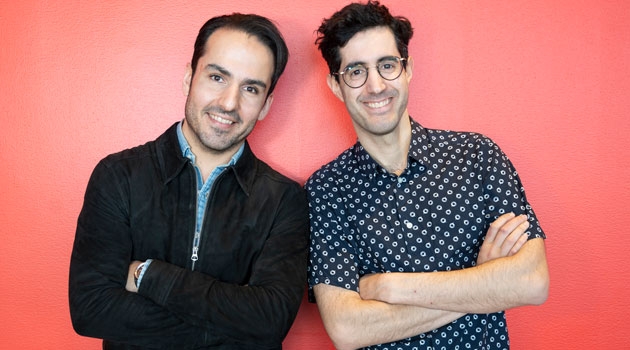Voices from the Sylff Community
Feb 7, 2024
Enhancing Immigrant Integration through Social Connections: An Experimental Study in Sweden
Olle Hammar’s (Uppsala University, 2020) Sylff Research Grant focused on evaluating a program aimed at promoting social inclusion of immigrants and refugees in Sweden. The project, involving a randomized controlled trial in partnership with an NGO, assessed the impact of contact with natives on immigrants’ social, economic, and cultural integration. Preliminary results suggest potential benefits, including sustained relationships and increased job opportunities for immigrants.
* * *
Introduction
My project on “Social Networks and Immigrant Integration: Experimental Evidence from Sweden,” conducted together with Mounir Karadja and Akib Khan at Uppsala University, seeks to understand and enhance immigrant integration in Sweden, a country known for its progressive social policies but which is now grappling with the challenges of integrating its growing foreign-born population (Statistics Sweden 2019). The project began with a deep interest in understanding immigrant integration in Sweden. Intrigued by the pivotal role social networks can play, we aim to explore the impact of social interactions between immigrants and native Swedes on the integration process.
The study is conducted in partnership with Nya Kompisbyrån (New Friend Agency), a Swedish nongovernmental organization facilitating informal meetings between immigrants and natives in Sweden. Immigrants, predominantly from low- and middle-income countries, are matched with native Swedes, fostering opportunities for language practice, cultural exchange, and network expansion. Through a randomized controlled trial, we assessed the effectiveness of this program.

Nya Kompisbyrån operations manager Mardin Baban, left, and Mounir Karadja of Uppsala University’s Department of Economics.
The COVID-19 pandemic posed significant challenges to this project, temporarily forcing participants to shift from direct, in-person interactions to digital meetings. Thankfully, solutions to these challenges were facilitated by the SRG, which allowed for the implementation of a more structured and sustainable survey data collection approach.
Background and Methodology
Sweden has experienced a significant influx of immigrants from diverse backgrounds, and their social and economic integration has become a key issue (Statistics Sweden 2019). Our research focuses on evaluating the effectiveness of social networks in facilitating this integration by working closely with Nya Kompisbyrån, one of the largest NGOs of its kind in Sweden.
In this project, we use a randomized controlled field experiment to evaluate a novel program administered by Nya Kompisbyrån.
The methodology is based on the observation that, since more immigrants than natives sign up for this program, not all immigrants can be matched with a native Swede. As such, our evaluation uses a randomization design where two immigrants are selected as potential matches for each native, based on common interests, gender, and age.
One of the immigrants is randomly assigned to meet with the native, while the other is placed in the control group. Individuals in both groups, as well as the participating native Swedes, were surveyed by an external survey company (co-financed by SRG) during the implementation period between October 2022 and September 2023. Using this data and methodology, we are able to assess the causal effects of contact with natives on immigrants’ social, economic, and cultural integration.
While the data collection phase is now finished, which was the aim of the SRG-funded part of the project, our next step will be to analyze the data and assess the final results. Preliminary findings suggest large potential benefits for the participating immigrants. Most matched pairs continue to meet after their first contact, indicating that a large share of matches results in meaningful and sustained relationships. In addition, many of the job-searching participants indicate that they have received a job or internship through their native Swedish contact. The interactions also seemed to facilitate stronger social networks for participating immigrants.
Adapting to COVID-19
The pandemic posed significant challenges to our original plan of studying in-person meetings between the participants. We adapted to these circumstances by shifting to a more sustainable format of long-term survey data collection, which allowed us to continue our research without compromising the integrity of the participants or the depth of our analysis. The project had to be temporarily suspended when COVID-19 made in-person meetings impracticable, but we were able to continue conducting fieldwork thanks to SRG.
The project will potentially have broad implications for Sweden’s approach to immigrant integration. It examines the importance of social connections and cultural exchange in breaking down barriers and fostering a more inclusive society (Allport 1954). The findings will offer valuable insights for policymakers, demonstrating how initiatives promoting direct social interactions between immigrants and natives can enhance the integration process.
Another contribution of this project is its experimental attempt to evaluate an NGO-driven intervention for immigrant integration. Many NGOs are active in the field of integration across the globe and often have innovative approaches based on voluntary participation, as well as low operating costs (Lundberg et al. 2011). In Sweden, the government identifies civil society as an important actor for integration. Yet, despite public and private investments, there is a lack of knowledge on the causal effects of civil society organizations in this domain (Osanami Törngren et al. 2018). As such, this project also contributes to evaluating civil society’ broader role in immigrant integration.
Both Academic and Practical Benefits
This journey has been both challenging and rewarding. Adapting to the unforeseen circumstances posed by the pandemic while maintaining the integrity of our research project was a significant learning experience. We are very grateful for support from the Sylff Association in helping us quickly adapt to these changed circumstances. The SRG funding was instrumental in the success of this project, enabling us to navigate unforeseen obstacles and contribute significantly to the field. It has also allowed me to continue my collaboration with my research colleagues and the NGO, as well as other actors in the area of immigrant integration in Sweden and abroad.
The project has been pre-accepted for publication in the Journal of Development Economics (Hammar, Karadja, and Khan 2023), based on a pre-results review. This, we believe, is a testament to its academic significance and practical relevance. The insights gained from this research will contribute not only to the academic understanding of immigrant integration but also offer practical insights for NGOs and policymakers on the potential of social networks and informal meetings. It strengthens our belief in the power of simple human connections to bridge cultural divides and enhance societal cohesion.
Our next step will be to analyze and disseminate the final results of this project. Going forward, we will further explore the dynamics of immigrant integration in different cultural and societal contexts. Our research also highlights the need for more innovative approaches to policymaking in the realm of migration and integration.
References
Allport, G.W. 1954. The Nature of Prejudice. Reading, MA: Addison-Wesley.
Hammar, O., Karadja, M., and Khan, A. 2023. “Social Networks and Immigrant Integration: Experimental Evidence from Sweden,” Journal of Development Economics, Accepted (Pre-Results Review).
Lundberg, E., Brundin, P., Amnå, E., and Bozzini, E. 2011. “European Civil Societies and the Promotion of Integration: Leading Practices from Sweden, Great Britain, the Netherlands and Italy.” In Social Rights, Active Citizenship and Governance in the EU. Baden-Baden: Nomos Verlagsgesellschaft.
Osanami Törngren, S., Öberg, K., and Righard, E. 2018. “The Role of Civil Society in the Integration of Newly Arrived Refugees in Sweden.” In Newcomer Integration in Europe: Best Practices and Innovations since 2015.
Statistics Sweden. 2019. “Integration: En beskrivning av läget i Sverige,” Integration 13.

